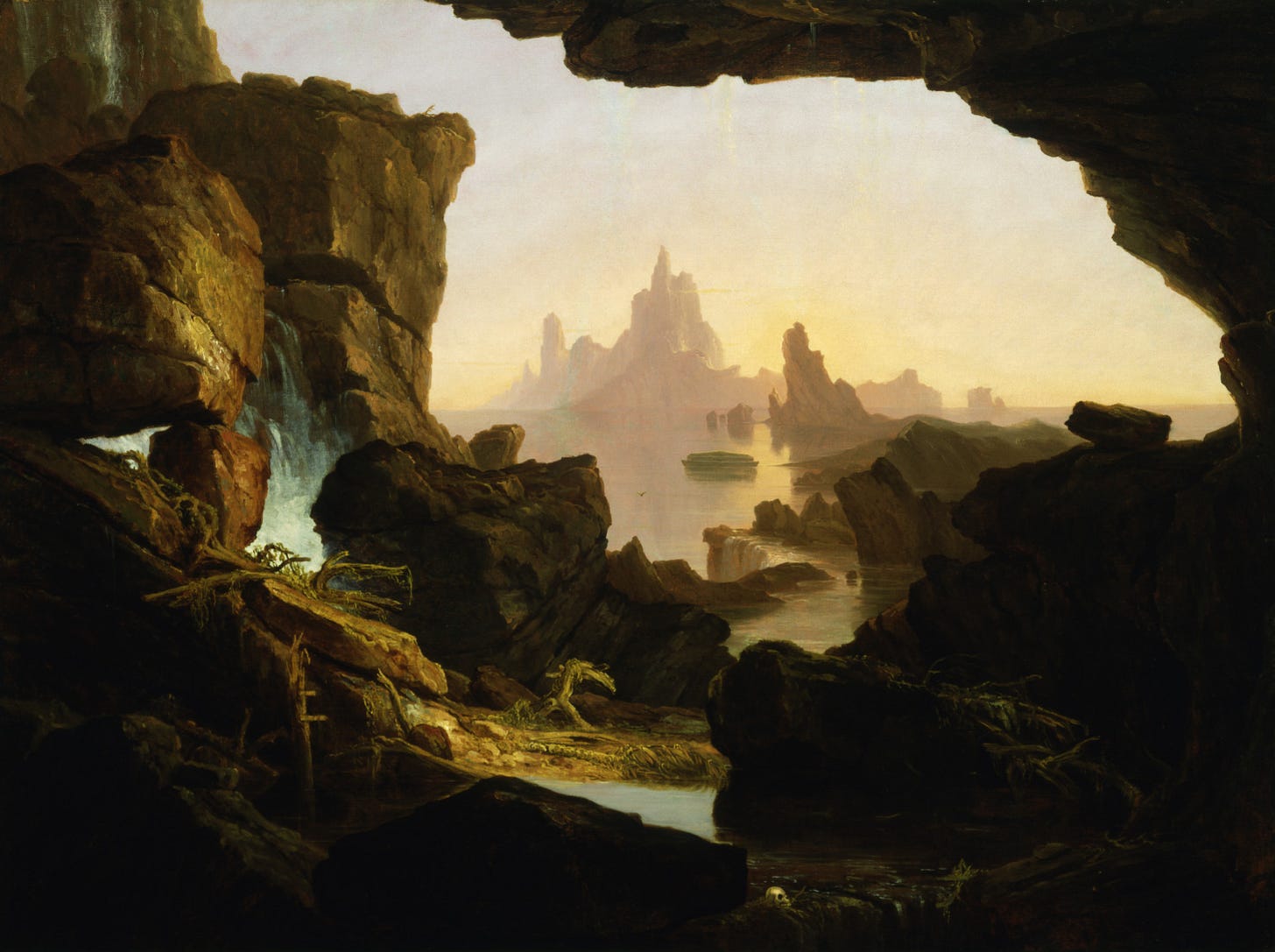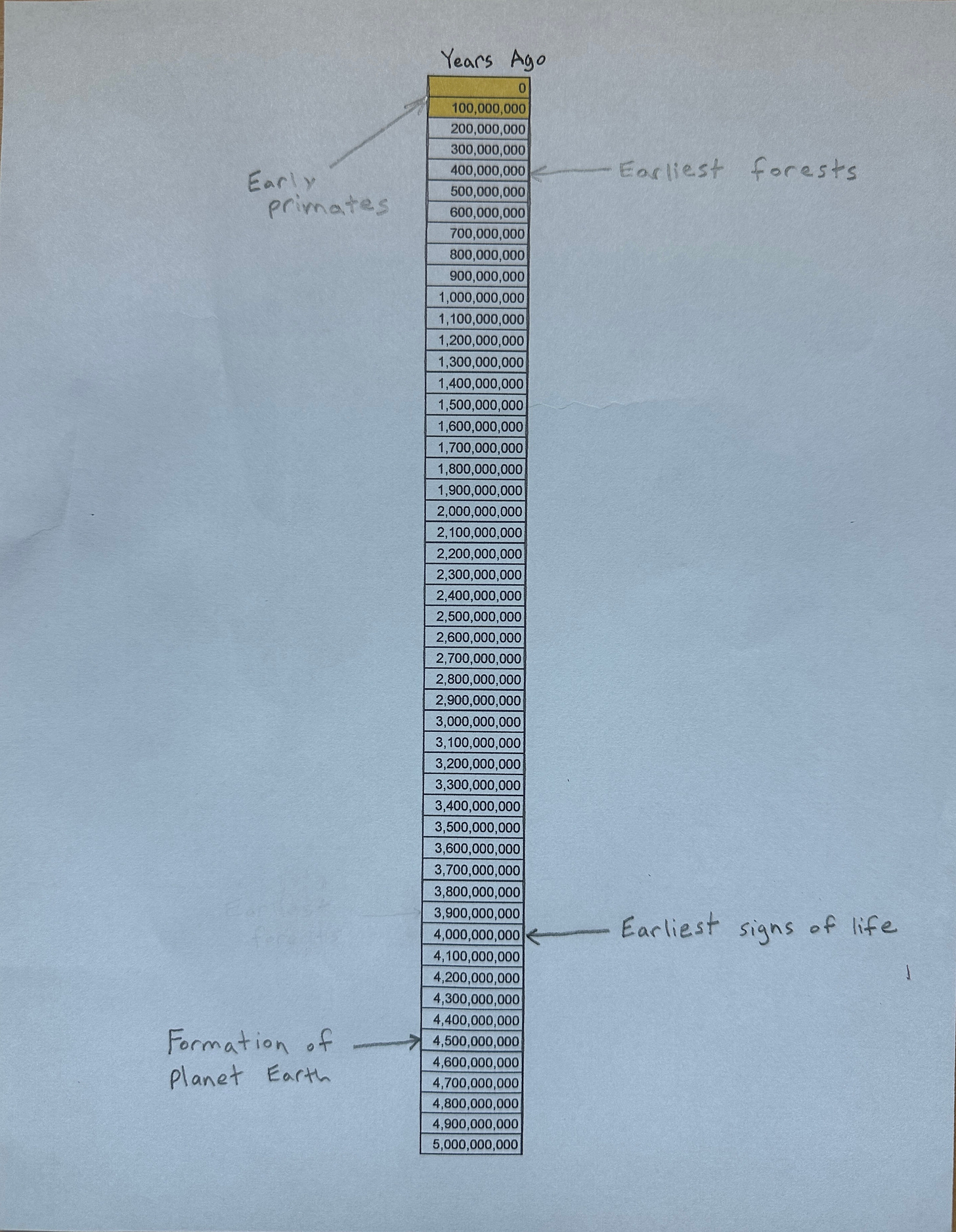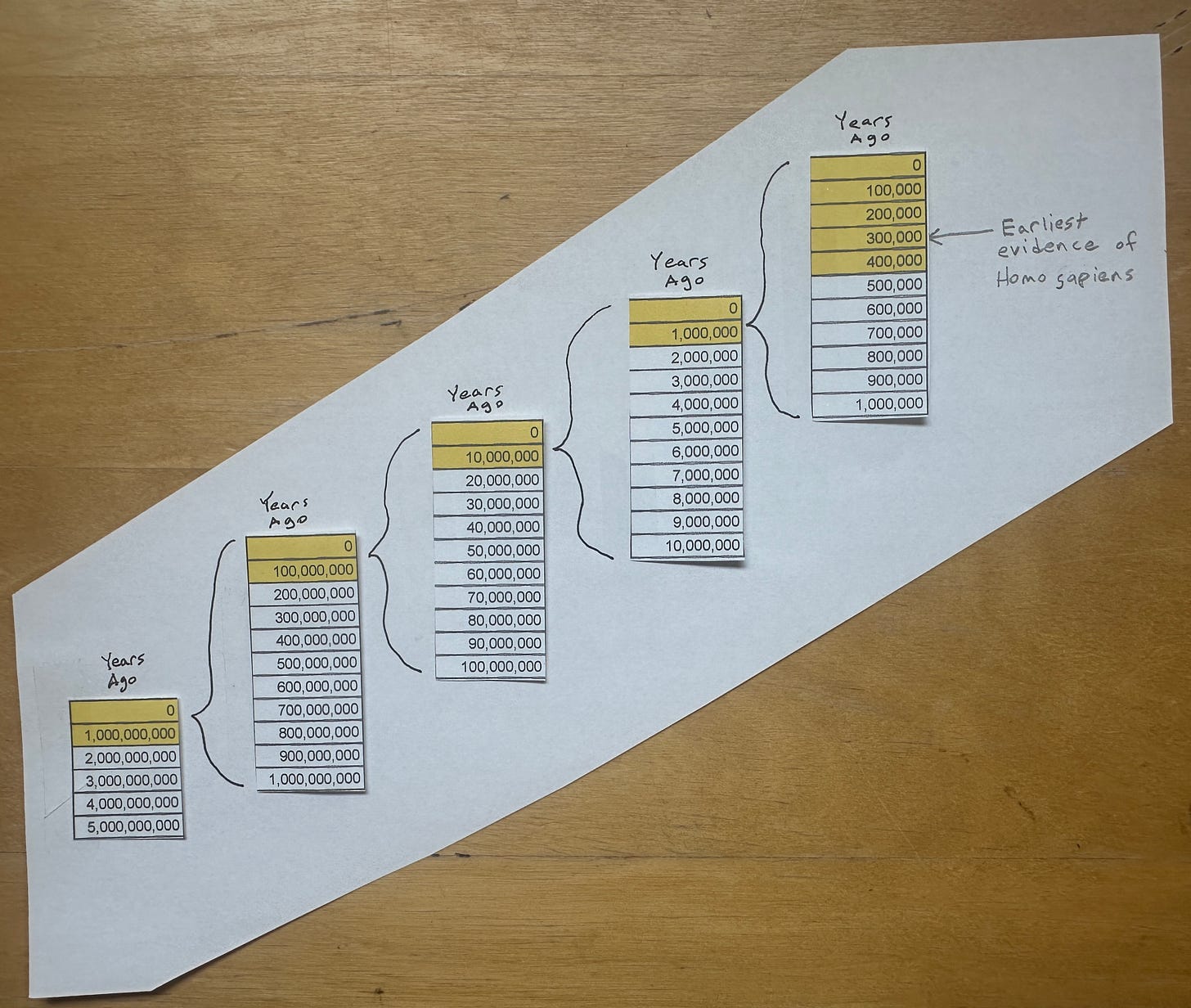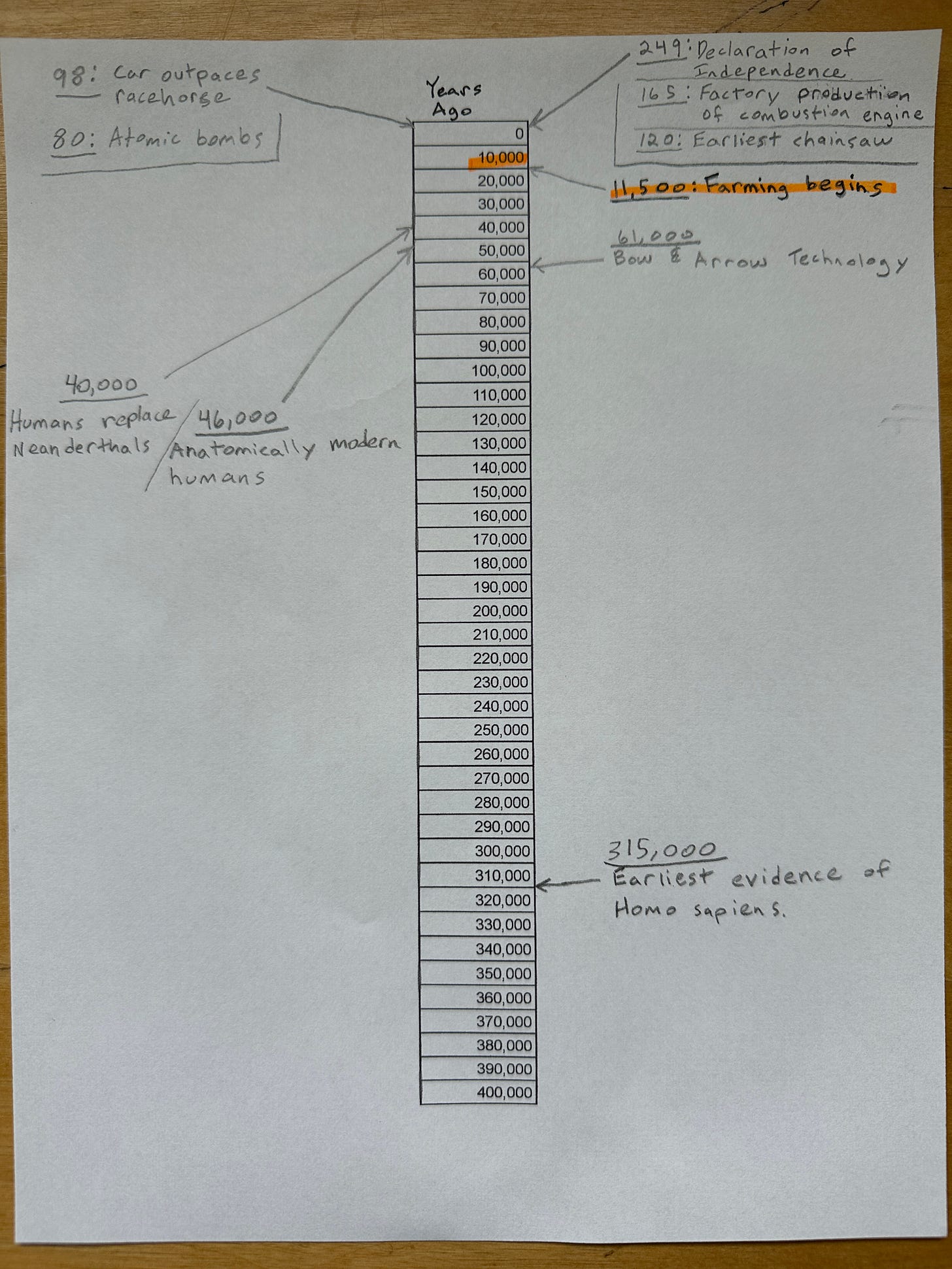We Just Got Here
Agriculture's Short Chapter
We act like we’ve been here forever
If Earth’s existence were a 1-mile walk (5,280 feet), humans arrived in the final 351 feet.
You Missed So Much on the Way Here
Imagine driving between New York and Los Angeles with your friends. It’s a 2,800-mile drive. You decide to fly most of the way, hopping in the car somewhere in the Mojave Desert for the last 180 miles of the journey. What about the drama, excitement, stories, and adventure you missed by not being in the car for the first part of the journey? That 180 miles is like humans on Earth.
But We Showed Up Just Before the Credits Rolled
If you watched the movie, E.T., for the last five minutes, you’d see E.T. getting picked up by his spaceship. No backstory. No details. Just an odd-looking creature with translucent skin over his heart, surrounded by sweatsuit-wearing teenagers. Those final five minutes mirror humanity’s time on Earth.
Back to the 1-Mile Walk
On that same 1-mile walk, farming began within the last speck of existence: the last 0.0001056 feet of the journey (0.000002% of Earth’s existence).
For the 315,000 years humans have been around, they’ve been farming for 3.5% of the time.
Yet We Changed Everything
Just 500 years after the discovery of agriculture, continuous human settlement began. We settled, stayed, and grew. After planting our first seed, it took us 1,500 years to milk cows and harvest grains.
As of 2015, lawns are America’s largest crop.
Now We are Rewriting the Script
Three thousand years later (5,000 years ago), the global population reached 50 million.
We’re late to Earth’s story, but act like the story is about us. We might just be walk-ons.
*Thank you for reading Next Adventure. Your support makes it possible to consistently publish essays. “Liking” (❤️) this post helps spread the word, and becoming a paid subscriber enables me to continue.








I've seen some of those stats, and it is always a great reminder of how small humans are in the big scheme, yet how dramatically we are altering the world. That one about humans farming for only 3.5% of the time we've been around is wild!
Humbling how much humans have accomplished in so short a time--and at what cost to the natural world. If we're so smart, why don't we do better?